All indications point to Google announcing its latest Chromecast during tomorrow’s hardware event. And I managed to buy one yesterday even before the “official” unveiling. So I can now confirm that, as the rumors and leaks have made clear over the last few weeks, this isn’t the Chromecast that most consumers are familiar with.
Instead of a no-frills TV dongle that plays content sent over from the apps on your phone or computer, the new Chromecast finally has a proper menu system and familiar user interface — and now it comes with an actual remote control.
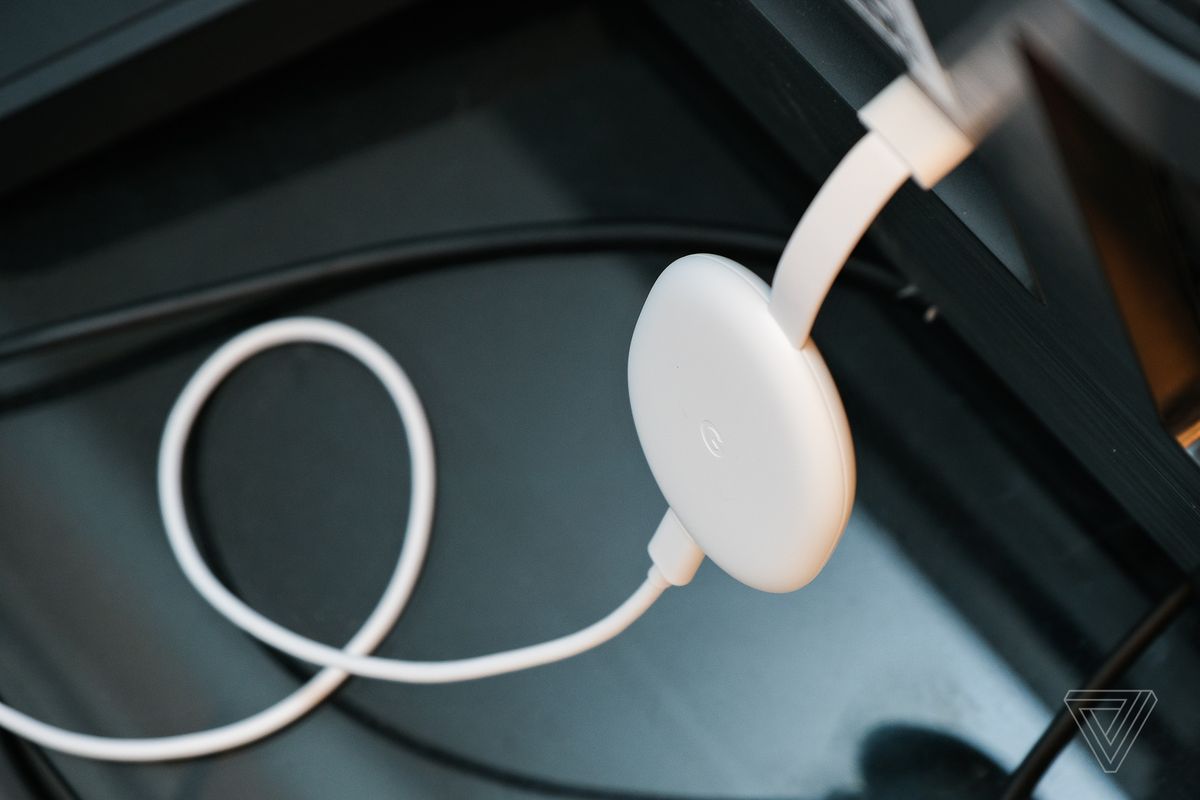
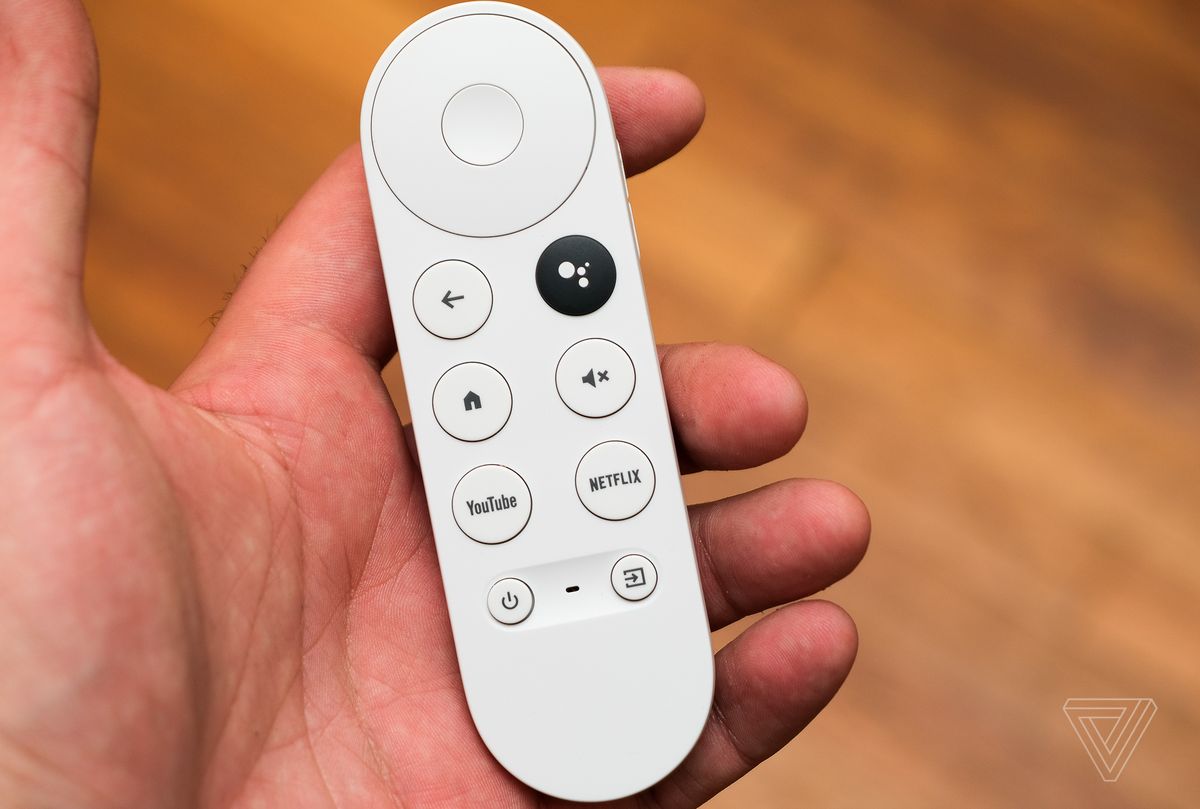
It’s a Chromecast in name, but Google’s latest streaming device is actually powered by Android TV, which more closely resembles a Roku or Amazon Fire TV in how you use it. Apps like Netflix, Amazon Prime Video, Disney Plus, HBO Max, and many others can be downloaded onto the Chromecast itself. You can browse them with the remote and start playing something without having to cast it from another device. It’s all very intuitive and easy to use.
But while Android TV is the foundation of the new Chromecast, the whole experience feels very new. Because unlike TVs from Sony and set-top boxes from Nvidia and other brands that run the traditional version of Android TV, Google has created a new “Google TV” layer atop the operating system that completely replaces the old home screen experience.
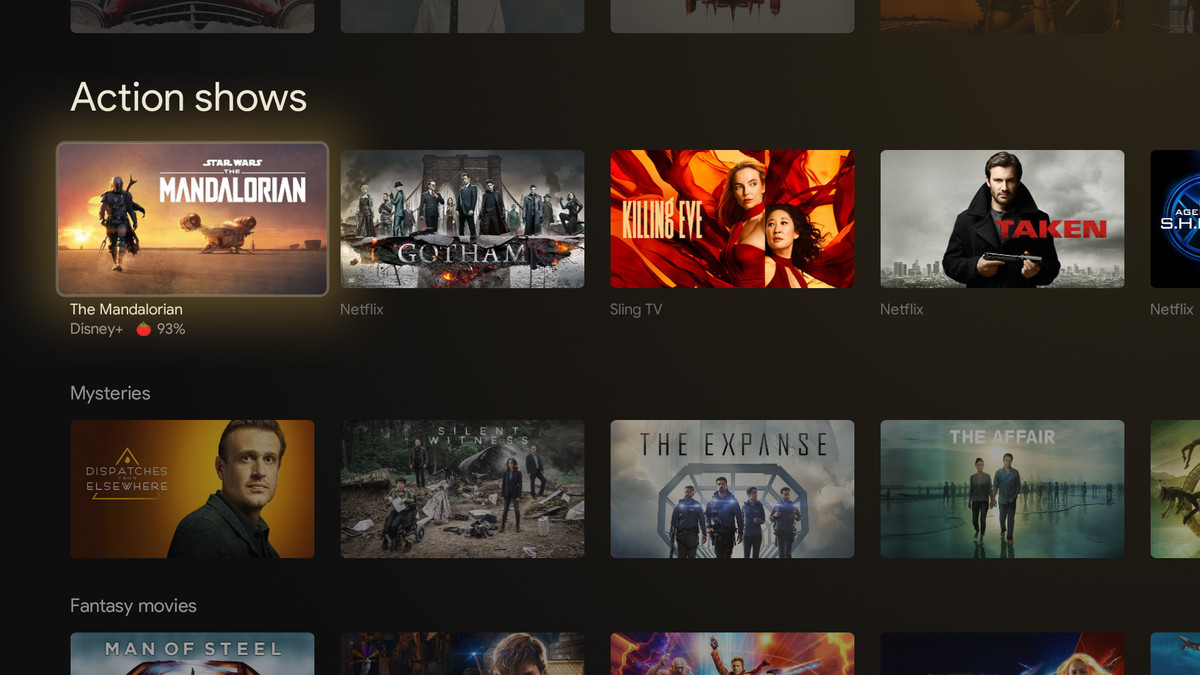
Instead of letting you customize the home screen (Android TV gives some apps like Netflix and YouTube their own dedicated rows that you can move around or get rid of), Google TV is all about aggregation. It brings together content from all the streaming services you’re subscribed to and lists them all side by side in Netflix-like rows of recommendations.
There are dedicated tabs for movies and TV shows (along with a personalized “For You” section that mixes them together), but Google is clearly trying to break down the walls between streaming platforms. It’s the same thing Apple has attempted with the Apple TV app. In the screenshot above, notice how in the active row, Google TV shows artwork for each show — but almost puts more importance on making it clear what service they’re all coming from.
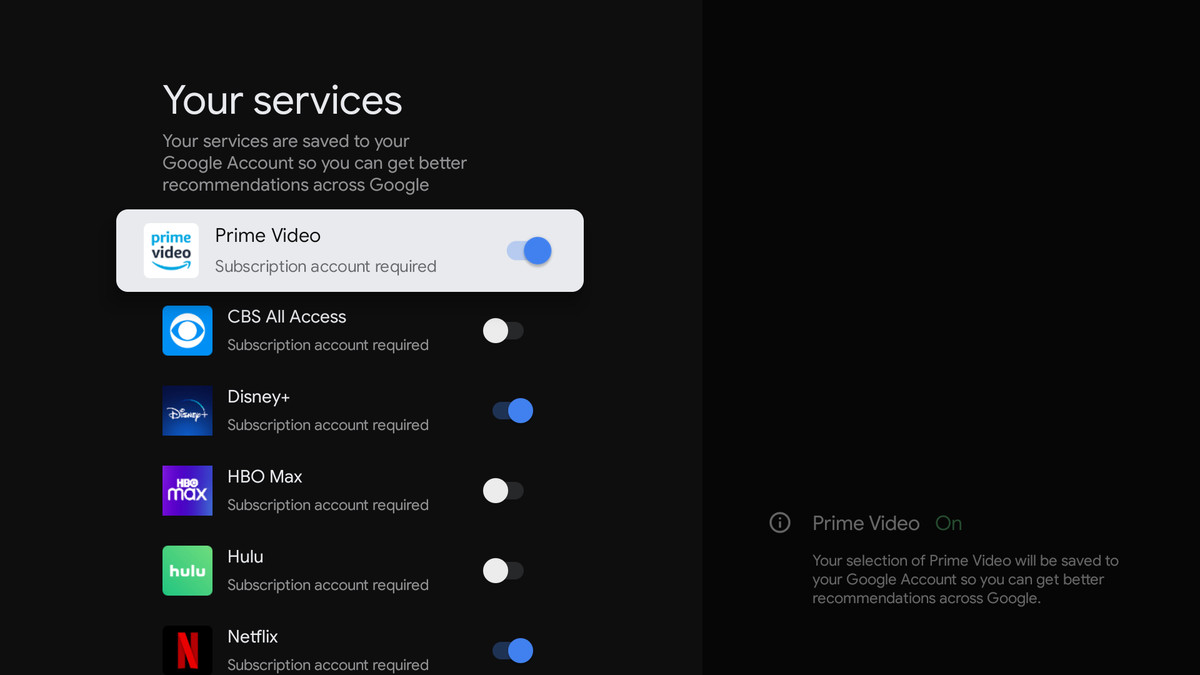
You can toggle which apps you pay for, and which you don’t, to influence what content Google pushes on you. But even then, sometimes you’ll see items from HBO Max regardless of whether the service is unchecked. If a recommendation is from an app you’re not currently subscribed to (or if a rental or purchase is required to watch it), you’ll see a small lock icon next to that title as a visual cue that it’ll take more than a couple clicks to start streaming; you’re gonna have to pay something.
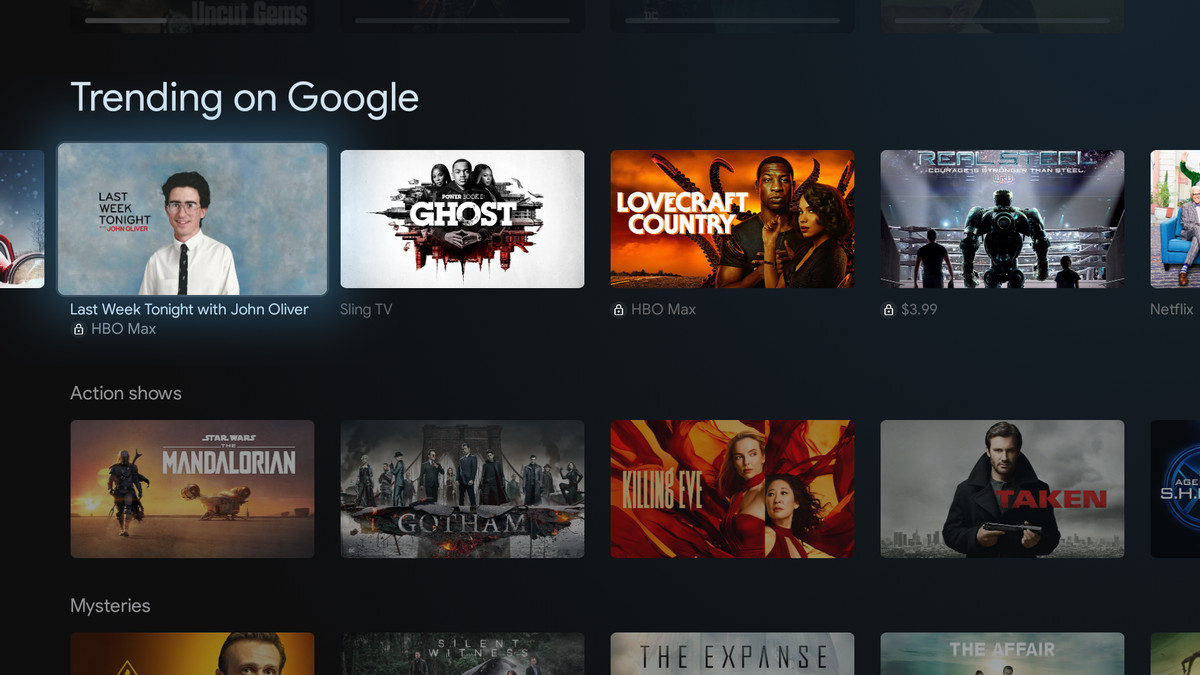
So yes, the home screen has seen a dramatic overhaul, but there’s still plenty of Android TV here. You can do voice searches by holding down the Google Assistant button on the remote and speaking. The universal search brings back results from all the big streaming services, and here you’ll helpfully still see those dedicated rows for apps like Netflix. As before, Google Assistant can control your smart home gadgets or check the weather.
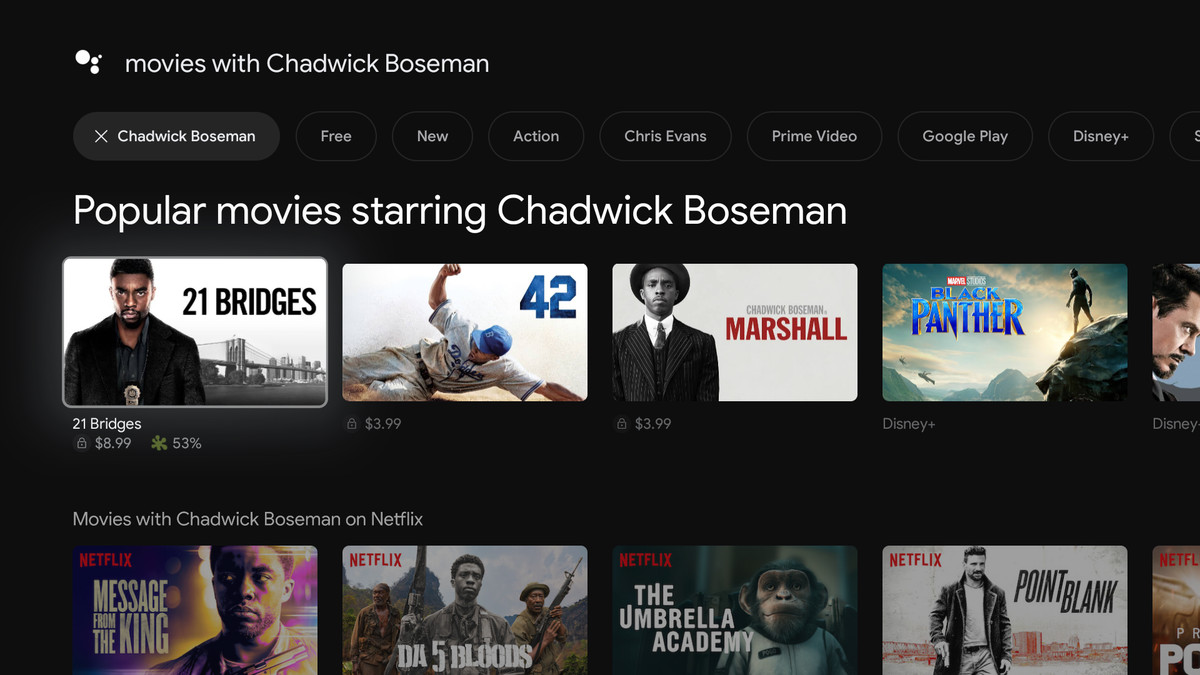
If you can download an app on Android TV, you can download it onto the new Chromecast. It remains possible to sideload software (I just successfully did that with Stadia), and power users still have the freedom to futz with developer options and see how far they can push Google’s new $50 dongle. But there’s no way to completely disable Google TV and get back the regular Android TV experience, at least not one I could find. And yes, you’re still very much able to cast movies, shows, and audio from other devices to the Chromecast. So it retains that core part of the appeal from its predecessors.
I’ll have much more to say about the new Chromecast with Google TV very soon. But there’s been a lot of confusion over just what exactly this thing is and what it does. It’s a Chromecast that actually runs Android TV, with an all-new “Google TV” software interface that’s exclusive to this device, at least for now.
…Make sense?
https://www.theverge.com/2020/9/29/21494298/chromecast-google-tv-preview-android-features

